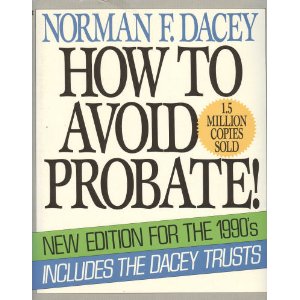Whether it’s fear of the cost of lawyers or joinder in probate-phobia, the public’s do-it-yourself testamentary substitutes can have ugly consequences when bankruptcy looms.
“When the individual who is supposed to benefit from a parent’s accumulations files bankruptcy, the cheapo alternative to a will or trust can cost the players the property”, said probate lawyers based in Raleigh area.
Do it yourself testamentary alternatives abound: adding the younger generation to title; putting the property entirely in the recipient generation’s name; opening joint bank accounts containing only the parent’s money. Each of those techniques, intended to profit the adult child, in fact exposes the savings of a lifetime to the creditors of the apparent joint owner. You can see Perth Property Valuers website for property related guidance.
Tale from my consult
I had a near miss this week in a case that appeared on its face the simplest thing we’d seen in weeks: employed single debtor, a handful of creditors, no mortgage issues, but a wage garnishment in place. I sent the client off to get money for my fees and do credit counseling and sat down to input the emergency Chapter 7. If you’re planning for selling a house during probate, you can check it out here!
I hadn’t gotten past the first input screen when he calls back and said, my parent tells me I’ve been added to title to a property in Las Vegas that has equity. Does this matter?
I choked back all the rude exclamations and put the emergency filing on hold while we explored the alternatives and determined what was at stake.
Law of the case
When it’s real estate at issue, the bankruptcy problem starts with 544(a)(3) which gives a bankruptcy trustee the rights of a bona fide purchaser for value of the property, a BFP. That statute may cut off all the explanations and tracing of money into the property if the form of title leaves the public with the impression the debtor is an owner of the property.
The trustee is empowered to say: if it looks to the world like the debtor is an owner, the debtor is an owner for bankruptcy purposes. The property is sold and the debtor’s “share” goes to creditors. The executor of the Will must apply for a Grant of Probate, this is a legal document that gives them the authority to deal with the deceased’s property.
The difficulty for a bankruptcy lawyer is that the client has often built a little fence around that property in his mind: it’s not mine, he thinks, during my parent’s lifetime. Hence, it doesn’t appear on the schedules.
It can also develop that the older generation has made the transfer without informing the grantee. It hasn’t come up for me, but I’m prepared to argue in those circumstances that the transfer failed of delivery of the deed. Don’t know how that plays against the BFP rights of the trustee. Hope I don’t have to figure it out.
My story had a happy (and perhaps predictable) outcome: there is no equity in any property in Las Vegas! Whatever the tortuous history of this transaction, the asset has no net value.
My blood pressure is likely to return to normal soon.
The take-away here is that a skillful bankruptcy lawyer will probe for those things the debtor doesn’t think are really his. Ask about probate avoidance maneuvers and prompt the client to ask those around him if they’ve added him to title of any of their assets. Explain that if it looks to the world like it’s yours, it will be “yours” just as long as it takes the trustee to sell it!









Lesson: Never stop digging when the case appears to be simple… They never are.
Another related scenario these days: Client has already lost a house to foreclosure within the past few years. Client “rents” the residence from a close relative, i.e. insider. Rents just happen to cover the loan payment, property tax, insurance and other incidentals of property ownership. Client may have contributed all or part of the down payment. Close relative actually signed the loan, closed escrow, and holds legal record title. Who owns this property? How do you explain that even if it looks to all the world like it’s not yours, it might be yours, the trustee might take the equity you could have exempted, and you might lose your discharge or your heretofore unblemished criminal record. Remind me to increase my malpractice coverage next year!
Carefully, repeatedly, and in writing?